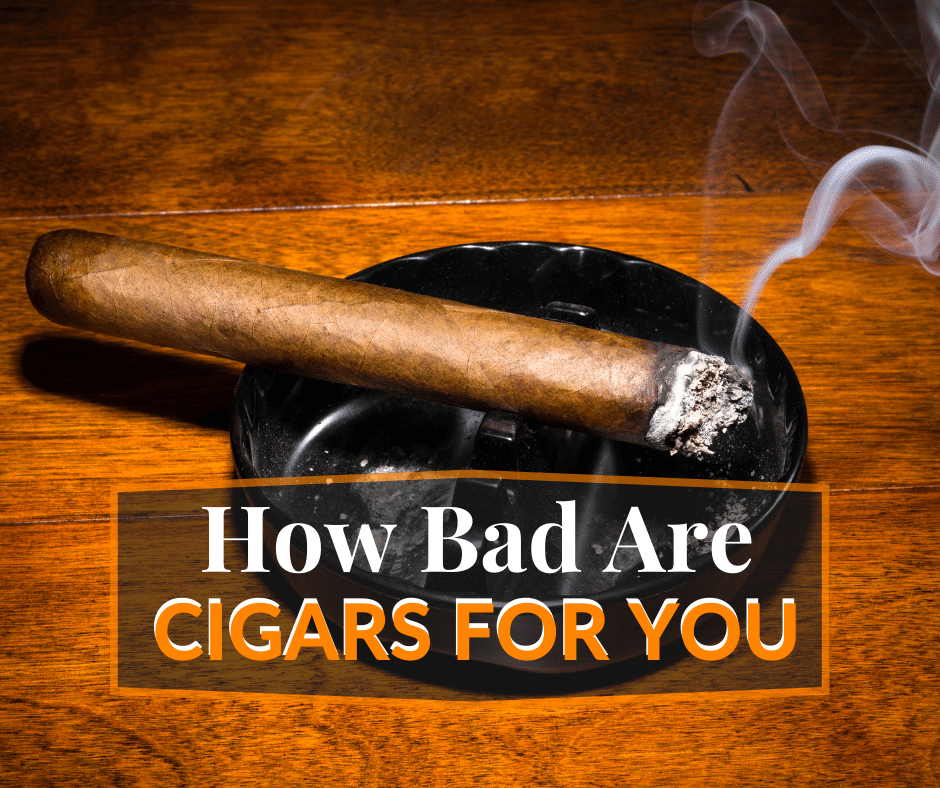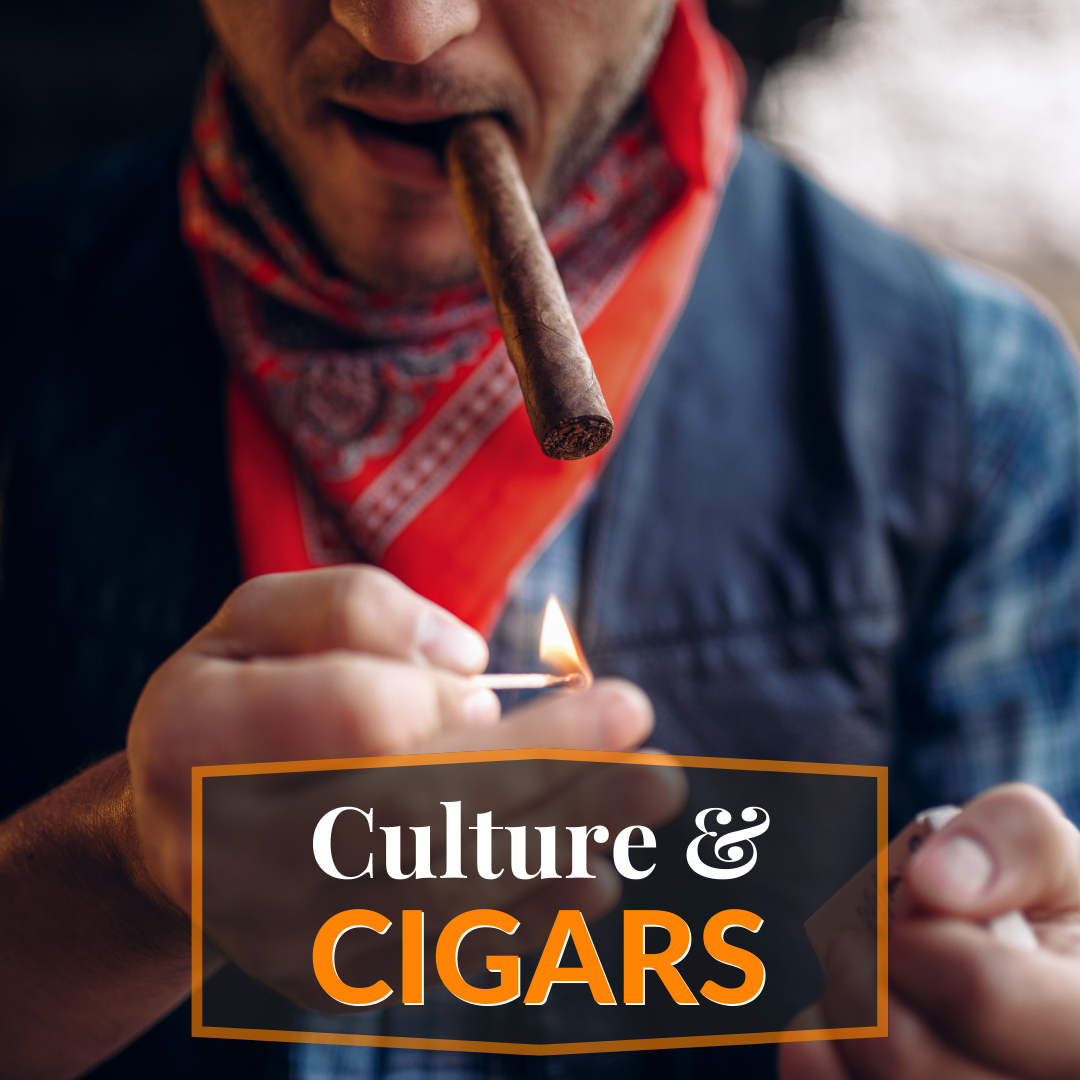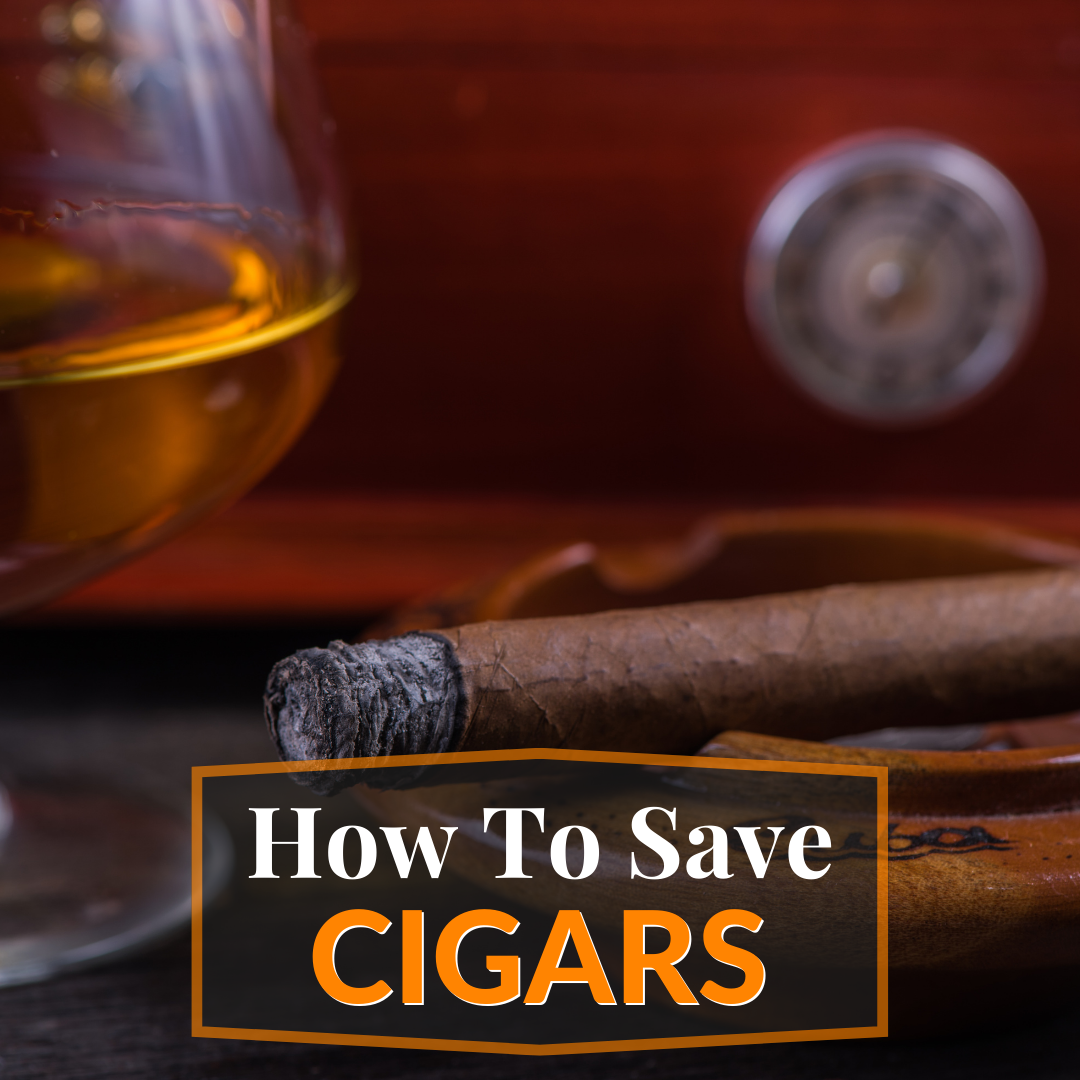
Cigars, especially premium cigars, have long been associated with luxury and prestige. But what are the health effects of cigar use and their smoke? In this article, we’ll explore the composition of cigars, the health risks associated with being a cigar smoker, and how they compare to when you smoke cigarettes. We’ll also discuss the myth of occasional cigar smoking, the dangers of secondhand smoke, and the impact of flavored and large cigars on public health. Finally, we’ll provide tips and resources to help you quit smoking cigars for a healthier lifestyle. Whether you are a cigar beginner or a grizzled cigar vet, there is info in this article that will raise your eyebrows!
The Composition of Premium Cigars
Even if you have been a cigar smoker for years, you may not really know what is in cigars. At least not everything.
Tobacco Leaves
Premium cigars contain high-quality tobacco leaves that have been aged and fermented to enhance their flavor and aroma. These leaves contain nicotine, a highly addictive substance that can lead to dependence and various health issues.
Chemicals and Additives
In addition to tobacco, cigars may contain a plethora of chemicals and additives. Many of these chemicals are harmful and can cause cancer, respiratory issues, and other health problems.
Health Effects of Cigar Smoke: Understanding the Risks
There are several health risks associated with cigar smoking. Here are just a few:
Lung Disease and Lung Cancer
Cigar smoke contains toxic and irritating chemicals that can harm your respiratory system, leading to chronic obstructive pulmonary disease (COPD), emphysema, and lung cancer. Inhaling cigar smoke can also worsen existing respiratory conditions like asthma.
Heart Disease and Stroke
Smoking cigars can raise your risk of heart disease and stroke by increasing your blood pressure, cholesterol levels, and the formation of blood clots. The harmful chemicals in cigar smoke can also damage your blood vessels, making it harder for your heart to pump blood effectively.
Addiction and Dependence
Nicotine, the addictive substance found in tobacco, can lead to physical and psychological dependence on cigars. Addiction can make it difficult to quit smoking, even when you’re aware of the associated health risks.
Cigar vs. Cigarette Smoke: A Comparison
While both cigar and cigarette smoke contain harmful chemicals, cigar smoke is generally more concentrated due to the larger size and longer burning time of cigars. This means that even if you don’t inhale cigar smoke, you’re still exposed to a higher amount of harmful substances compared to cigarettes.
The Myth of Occasional Cigar Smoking
Many people believe that smoking cigars occasionally is safer than regular cigar smoking or cigarette smoking because they don’t inhale the smoke directly into their lungs. However, this is a misconception. Even without inhaling, the toxic chemicals in cigar smoke can still be absorbed through your mouth and throat, leading to a variety of health issues. There is no safe level of cigar smoking, and even occasional cigar smoking poses serious health risks. Yes, even one cigar occasionally can be dangerous.
The Dangers of Secondhand Cigar Smoke
Cigar smoke isn’t just harmful to the smoker; it also poses a significant risk to those exposed to secondhand smoke. The chemicals found in secondhand cigar smoke can cause respiratory issues, heart disease, and cancer in nonsmokers, especially children and pregnant women. So when you smoke a cigar, you really need to be aware of the effects of smoking and the possible adverse health effects on the people in your vicinity.
The Impact of Flavored and Large Cigars on Public Health
Flavored cigars and large cigars, including cigarillos and little cigars, have become increasingly popular in recent years. These types of cigars can be especially appealing to young people and those new to smoking due to their enticing flavors and packaging. However, flavored and large cigars pose the same serious health risks as regular cigars and contribute to public health problems, including addiction and negative health outcomes.
Quitting Cigar Smoking: Strategies and Support
If you’re ready to quit smoking cigars, consider the following strategies and support options:
- Smoking Cessation Programs: Many programs, such as those offered by the National Institutes of Health and the American Lung Association, provide guidance and resources to help you quit smoking, including cigar smoking.
- Nicotine Replacement Therapy: Products like nicotine gum, patches, or lozenges can help reduce withdrawal symptoms and cravings without exposing you to the harmful chemicals found in cigar smoke.
Cigars, particularly premium cigars, may be associated with luxury and prestige, but they pose significant health risks to both the smoker and those exposed to secondhand smoke. By understanding the dangers of cigar smoking, the myth of occasional cigar smoking, and the impact of flavored and large cigars on public health, you can make informed decisions about your health and well-being. If you’re ready to quit smoking cigars, consider seeking support through smoking cessation programs and nicotine replacement therapy to help you on your journey to a healthier, smoke-free life.
FAQs
How do the health risks of cigars compare to those of cigarettes?
Both cigars and cigarettes contain harmful chemicals that can lead to serious health issues. However, cigar smoke is generally more concentrated due to the larger size and longer burning time of cigars. This means that even if you don’t inhale cigar smoke, you’re still exposed to a higher amount of harmful substances compared to cigarettes.
Is it safe to smoke cigars occasionally?
There is no safe level of cigar smoking, and even occasional cigar smoking poses serious health risks. The toxic chemicals in cigar smoke can still be absorbed through your mouth and throat, leading to various health issues.
What are the dangers of secondhand cigar smoke?
Secondhand cigar smoke can cause respiratory issues, heart disease, and cancer in nonsmokers, especially children and pregnant women. It is important to avoid exposing others to cigar smoke to protect their health.
Are flavored and large cigars less harmful than regular cigars?
Flavored and large cigars, including cigarillos and little cigars, pose the same serious health risks as regular cigars. They can also be particularly appealing to young people and those new to smoking due to their enticing flavors and packaging, contributing to public health problems.
What resources are available to help me quit smoking cigars?
Smoking cessation programs, such as those offered by the National Institutes of Health and the American Lung Association, can provide guidance and resources to help you quit smoking. Nicotine replacement therapy, like nicotine gum, patches, or lozenges, can also help reduce withdrawal symptoms and cravings.
By understanding the health effects of cigars and the risks associated with smoking them, you can make informed decisions about your health and well-being. If you’re ready to quit smoking cigars, consider seeking support through smoking cessation programs and nicotine replacement therapy to help you on your journey to a healthier, smoke-free life.





